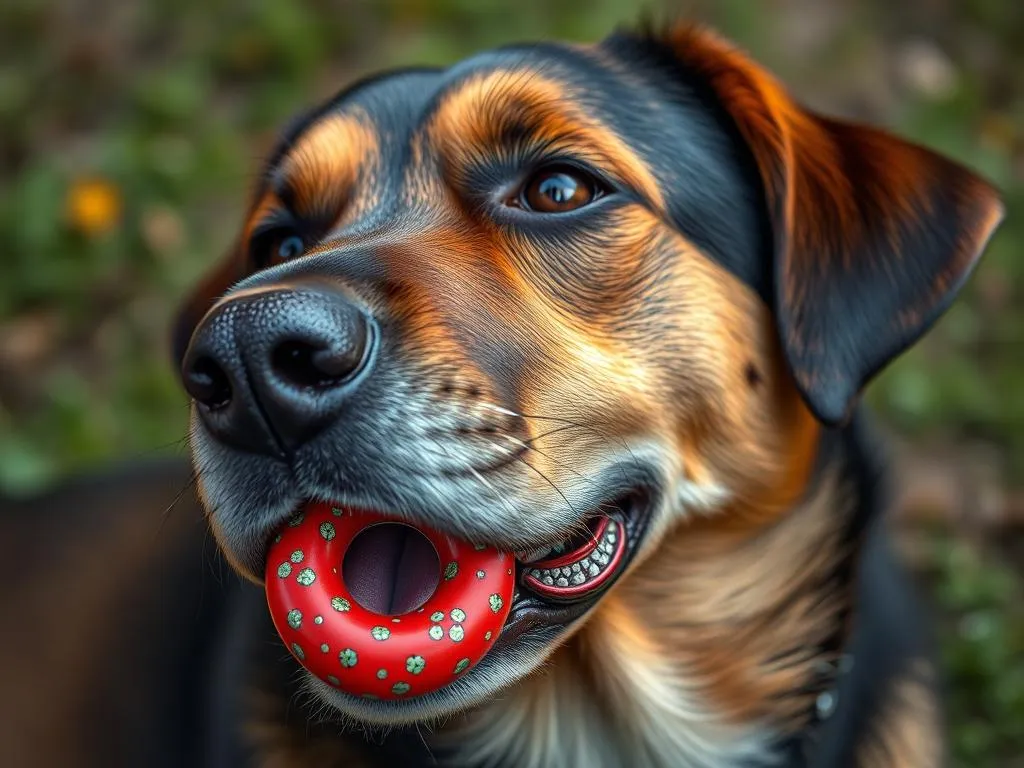
Dogs are notorious for their curious nature, often leading them to explore the world with their mouths. This instinct can sometimes result in the ingestion of non-food items, including magnets. Understanding the implications of a dog eating a magnet is crucial for every dog owner, as the risks vary significantly depending on the type and size of the magnet ingested. Here’s what you need to know if your dog has swallowed a magnet.
Understanding the Risks of Magnet Ingestion
What Happens When a Dog Eats a Magnet?
When a dog ingests a magnet, it can cause various complications in the digestive system. Magnets can attract each other through the intestinal walls, leading to the formation of a blockage or perforation. This condition is particularly dangerous because it can result in a life-threatening situation, requiring immediate medical attention. If the magnet is small enough, it may pass through the digestive tract without major issues. However, larger magnets can pose serious complications.
Types of Magnets Commonly Ingested
Small magnets are often found in toys, refrigerator magnets, or decorative items. These can be relatively harmless if ingested alone. However, if a dog swallows multiple small magnets, they can attract each other through the intestinal walls, leading to serious health risks.
On the other hand, larger magnets, such as industrial or neodymium magnets, can be particularly dangerous due to their strong magnetic forces and size. Their ingestion can lead to immediate complications and require urgent veterinary intervention.
Symptoms to Watch For
Recognizing the symptoms of magnet ingestion is essential for prompt action. Signs that your dog may be in distress include:
- Vomiting: This could indicate that the dog is trying to expel the foreign object.
- Lethargy: A sudden lack of energy or interest in usual activities can signal a problem.
- Lack of Appetite: Refusal to eat may suggest digestive issues.
- Abdominal Pain: Dogs may show signs of discomfort or pain, such as whining or a hunched posture.
- Diarrhea or Constipation: Changes in bowel movements can also be a red flag.
If you notice any of these symptoms, especially after your dog has ingested a magnet, it’s crucial to seek veterinary advice.
Immediate Actions to Take
Assessing the Situation
Before panicking, assess the situation. Determine the size and type of magnet your dog swallowed. Knowing whether it was a small toy magnet or a larger industrial magnet can help your veterinarian make informed decisions. Observe your dog’s health closely—are they acting normally, or do they exhibit signs of distress?
When to Contact Your Veterinarian
If your dog has ingested a magnet, certain signs warrant immediate veterinary assistance:
- Persistent vomiting or diarrhea
- Severe lethargy or unusual behavior
- Signs of abdominal pain or discomfort
- Difficulty breathing
When you contact your veterinarian, provide detailed information about the type of magnet ingested, the time of ingestion, and any symptoms your dog is exhibiting. This information will aid in determining the urgency of the situation.
What to Expect at the Vet’s Office
At the veterinary clinic, your dog may undergo several diagnostic procedures, including X-rays or ultrasounds, to assess the situation. These imaging techniques will help determine the location and potential complications of the ingested magnet.
Treatment options may vary based on the situation:
- Induction of Vomiting: If the ingestion was recent, the vet may induce vomiting to remove the magnet before it causes complications.
- Endoscopy: If the magnet is lodged in the esophagus or stomach, an endoscopic procedure may be performed to retrieve it.
- Surgery: In severe cases where the magnet has caused a blockage or perforation, surgical intervention may be necessary to remove it and repair any damage.
Preventive Measures
Dog-Proofing Your Home
One of the best ways to prevent magnet ingestion is to dog-proof your home. Here are some tips to keep magnets and other hazards out of reach:
- Secure Storage: Keep magnets, especially small ones, stored in cabinets or high shelves that are inaccessible to your dog.
- Use Safe Toys: Opt for dog toys that do not contain small parts or magnets that can be easily ingested.
- Regular Clean-up: Regularly check your home for stray magnets or items that could pose a risk to your dog.
Educating Family Members
Awareness is key to preventing incidents of magnet ingestion. Educate all family members about the importance of keeping non-food items away from your dog. Teach children how to handle magnets safely and explain the potential dangers they pose to pets. Having everyone on board will create a safer environment for your furry friend.
Long-Term Considerations
Monitoring Your Dog’s Behavior
After a magnet ingestion incident, it’s essential to monitor your dog’s behavior closely. Pay attention to any unusual behaviors or symptoms that may arise in the following days. If your dog shows any signs of distress or if their behavior changes, contact your veterinarian for advice.
Dietary Considerations
Discuss your dog’s diet with your veterinarian to ensure they are receiving a balanced and nutritious diet. Certain foods can promote digestive health and help prevent issues related to foreign object ingestion. A well-balanced diet can strengthen your dog’s overall health, making them less susceptible to gastrointestinal problems.
FAQs About Dogs and Magnet Ingestion
Can magnets be harmful to dogs?
Yes, magnets can be harmful to dogs, especially if they cause a blockage or perforation in the digestive tract. Always seek veterinary advice if you suspect your dog has ingested a magnet.
Are all magnets dangerous?
Not all magnets pose the same level of risk. Small magnets may be less dangerous if ingested alone, but multiple small magnets or larger magnets can lead to serious complications. It’s vital to consider the size and type of magnet when assessing danger.
What should I do if my dog swallows a magnet?
If your dog swallows a magnet, assess the situation and monitor for any symptoms. Contact your veterinarian immediately if you notice signs of distress or if the magnet is large. Provide your vet with as much information as possible regarding the type of magnet and any symptoms your dog is exhibiting.
Conclusion
In summary, if your dog has ingested a magnet, it is crucial to act quickly and seek veterinary assistance. Recognizing the signs of distress and understanding the risks associated with magnet ingestion can make a significant difference in your dog’s health outcome. Always prioritize prevention by dog-proofing your home and educating family members about pet safety. Your vigilance can help ensure a safe and healthy environment for your beloved canine companion.









